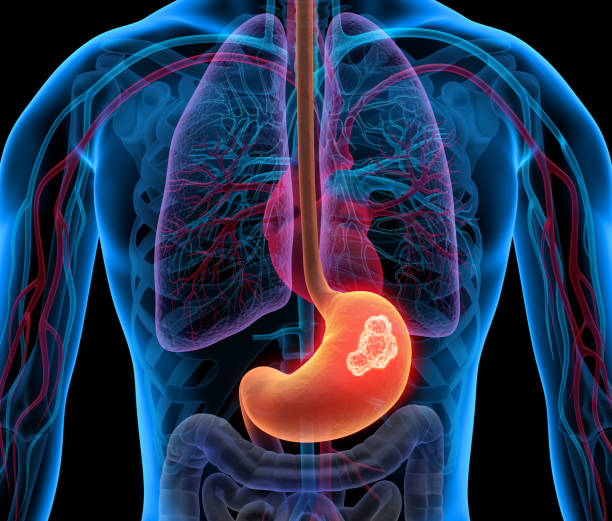Stomach cancer, also known as gastric cancer, is a type of cancer that develops in the lining of the stomach. It is the fifth most common cancer in the world and the third leading cause of cancer-related deaths.

In this blog, we will discuss the causes, symptoms, diagnosis, treatment, and prevention of stomach cancer.
Causes of Stomach Cancer
The exact cause of stomach cancer is not fully understood, but there are certain risk factors that can increase a person's likelihood of developing this type of cancer. These risk factors include:
-
Age: The risk of developing stomach cancer increases with age.
-
Gender: Men are more likely to develop stomach cancer than women.
-
Helicobacter pylori (H. pylori) infection: This is a bacterial infection that can cause inflammation of the stomach lining and increase the risk of stomach cancer.
-
Diet: A diet high in salted, pickled, or smoked foods, and low in fruits and vegetables, may increase the risk of stomach cancer.
-
Tobacco and alcohol use: Smoking and heavy alcohol consumption can increase the risk of stomach cancer.
-
Family history: If a person has a family history of stomach cancer, their risk of developing the disease is higher.
Symptoms of Stomach Cancer
In the early stages, stomach cancer may not cause any noticeable symptoms. However, as the cancer grows, the following symptoms may develop:
- Abdominal pain or discomfort
- Nausea and vomiting
- Loss of appetite or feeling full after eating a small amount
- Unexplained weight loss
- Difficulty swallowing
- Fatigue
- Blood in the stool
Diagnosis of Stomach Cancer
If a person is experiencing symptoms of stomach cancer, their doctor may recommend some tests to diagnose the condition. These tests may include:
-
Endoscopy: A thin, flexible tube with a camera on the end is passed down the throat and into the stomach to examine the lining of the stomach and take a biopsy.
-
Imaging tests: Tests such as X-rays, CT scans, and MRI scans may be used to create images of the stomach and detect any abnormalities.
-
Blood tests: Blood tests can help identify any abnormalities in the blood that may indicate the presence of stomach cancer.
Treatment of Stomach Cancer

The treatment of stomach cancer will depend on the stage of the cancer and the individual's overall health. Treatment options may include:
-
Surgery: Surgery may be used to remove the cancerous tissue from the stomach.
-
Chemotherapy: Chemotherapy uses drugs to kill cancer cells.
-
Radiation therapy: Radiation therapy uses high-energy X-rays or other forms of radiation to kill cancer cells.
-
Targeted therapy: Targeted therapy uses drugs to target specific proteins in cancer cells and disrupt their growth and spread.
Prevention of Stomach Cancer
There are several things a person can do to reduce their risk of developing stomach cancer, including:
- Quit smoking
- Limit alcohol consumption
- Maintain a healthy diet that is high in fruits and vegetables and low in salted, pickled, or smoked foods.
- Get vaccinated against H. pylori infection.
- Treat H. pylori infection if diagnosed.
- Regular exercise
- Regular medical check-ups
In conclusion, stomach cancer is a serious and potentially life-threatening condition. However, with early detection and treatment, the outlook for many patients can be positive. It's important to understand the risk factors for stomach cancer and take steps to reduce those risks, as well as to seek medical attention if you experience any symptoms associated with stomach cancer.












